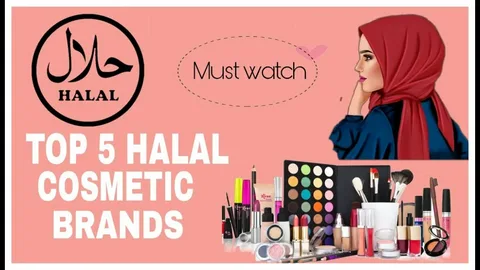In recent years, the beauty industry has seen a growing demand for products that align with ethical and religious values. Among these trends, halal makeup has emerged as a top choice for consumers seeking both spiritual and ethical assurance. But what exactly is halal makeup? In this beginner’s guide to ethical beauty, we’ll explore the meaning, importance, and benefits of halal cosmetics.
Understanding Halal in the Context of Beauty
The term halal is an Arabic word meaning “permissible” according to Islamic law. While it is most commonly associated with food, the concept also extends to personal care products. Halal makeup refers to beauty products that are free from ingredients prohibited by Islamic teachings, such as alcohol and animal-derived substances like gelatin or carmine obtained from non-halal sources.
In addition to ingredients, halal certification also requires that products are manufactured in clean environments, without contamination from non-halal substances.
Key Characteristics of Halal Makeup
To truly understand what is halal makeup, it’s important to know what distinguishes it from conventional or even vegan and cruelty-free makeup. Here are some defining features:
- Free from haram ingredients: No alcohol, pork derivatives, or harmful chemicals.
- Ethically sourced: Often overlaps with cruelty-free and vegan standards.
- Wudu-friendly options: Some halal makeup is designed to be water-permeable, allowing users to perform ablutions (wudu) without removing the makeup.
Why Choose Halal Makeup?
Consumers choose halal beauty products for a variety of reasons, including:
- Religious observance: For Muslims, using halal products is part of living a faith-conscious life.
- Health and ethical concerns: Halal makeup often avoids harsh chemicals and uses ethically sourced ingredients.
- Inclusivity and transparency: Brands that offer halal-certified options are more likely to be transparent about their sourcing and manufacturing processes.
Whether you’re Muslim or simply someone who values ethical beauty practices, halal makeup offers a cleaner and more conscious alternative.
How to Identify Halal Makeup
Now that you understand what is halal makeup, the next step is knowing how to find it. Look for certification from reputable halal authorities, such as the Islamic Food and Nutrition Council of America (IFANCA) or Malaysia’s JAKIM. Read ingredient lists carefully, and don’t hesitate to reach out to brands for clarification on their production practices.
Final Thoughts
In a market increasingly focused on transparency and values-based shopping, halal makeup stands out as a choice that blends faith, health, and ethics. Whether you’re new to the concept or looking to expand your collection, this beginner’s guide offers a helpful foundation for exploring a more mindful approach to beauty.



